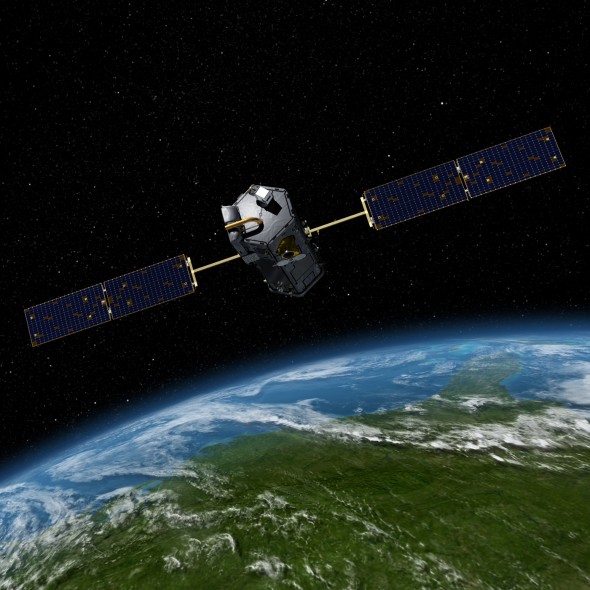Who Will Protect You from Drone Surveillance?
Before you ever see a package dropped onto your doorstep from the sky, drones are going to force us to wrestle with some thorny questions about privacy.
New rules from the U.S. Federal Aviation Administration for the commercial use of unmanned aircraft lighter than 55 pounds have opened the door to what could be a massive industry. It’s much bigger than delivery drones, which are not yet practical or legal in the U.S. First we’ll see more drones doing things like surveying real estate and inspecting infrastructure such as roofs, high bridges, cell towers, power lines, and wind turbines.
But our new drone reality has privacy advocates spooked: low-cost vehicles and sensors are likely to spur widespread adoption of a technology that can be used for persistent aerial surveillance, and bad actors could exploit gaps in existing privacy laws. It’s also not clear which government entities, if any, are responsible for addressing drone-related privacy concerns. The FAA has declined to make rules. The Federal Trade Commission, the U.S. government’s primary consumer privacy cop, is still exploring the issue. A few state laws have emerged to fill the void, but the overall landscape is inconsistent and unclear.
For starters, who owns the air above your land? Since the advent of modern aviation, landowners have typically held significant rights to the airspace up to 500 feet, above which is something like a “public highway for air travel,” says Troy Rule, a law professor at Arizona State University. But in order to regulate small, low-flying drones, the FAA has assumed authority over the airspace all the way to the ground. That challenges traditional notions of landowners’ right to the airspace above their property, says Rule.
How this will play out is far from clear. Last October, a man in Kentucky avoided state criminal charges after he shot a drone he said was violating his privacy. The drone’s owner has since filed a federal lawsuit seeking damages and asking the court to determine whether he and his drone were actually trespassing.
Drone industry advocates argue that these aircraft are not all that different from other technologies that could be used to conduct surveillance, and that state voyeurism and nuisance laws already in place will protect consumers. It could be challenging to enforce those laws, though. Imagine you suspect that a drone flying 100 feet above your land is spying on you, says Rule. “Who’s flying it? Who are you going to sue? And if you do sue, how are you going to prove it was spying?”
Indeed, drones pose unique privacy issues for several reasons besides the fact that they are remotely controlled. They are much cheaper and more accessible than vehicles commonly used for aerial photography, and better able to navigate tighter spaces, closer to the ground. Many also carry sophisticated cameras, and companies could collect valuable information about people while their drones fly around doing other things, like delivering packages.
Earlier this year several companies (including Amazon), drone industry groups, and consumer interest groups hammered out a set of voluntary best practices for privacy, via a “multistakeholder process” convened by the National Telecommunications and Information Administration. The document restricts the persistent collection of information that could identify individuals and calls on companies to notify people before intentionally collecting such information at all.
But there are “pretty large loopholes baked in,” says Margot Kaminski, a law professor at Ohio State University. And there is little incentive for smaller players to commit to the voluntary measures, she says, since they would open themselves up to FTC enforcement if they failed to comply.
A consistent refrain from industry representatives is that any new rules should not single out drones, since plenty of other technologies are already used to track people and conduct surveillance. At a drone privacy workshop hosted this month by the FTC, Brendan Schulman, vice president of policy and legal affairs for leading drone maker DJI, said potential regulations or legislation should address specific problems, not specific technologies.
“If, for example, the use-case concern is persistent surveillance, let’s deal with that as a society with a set of rules and law, but not that are specific to drones,” he said.

Leave a Reply